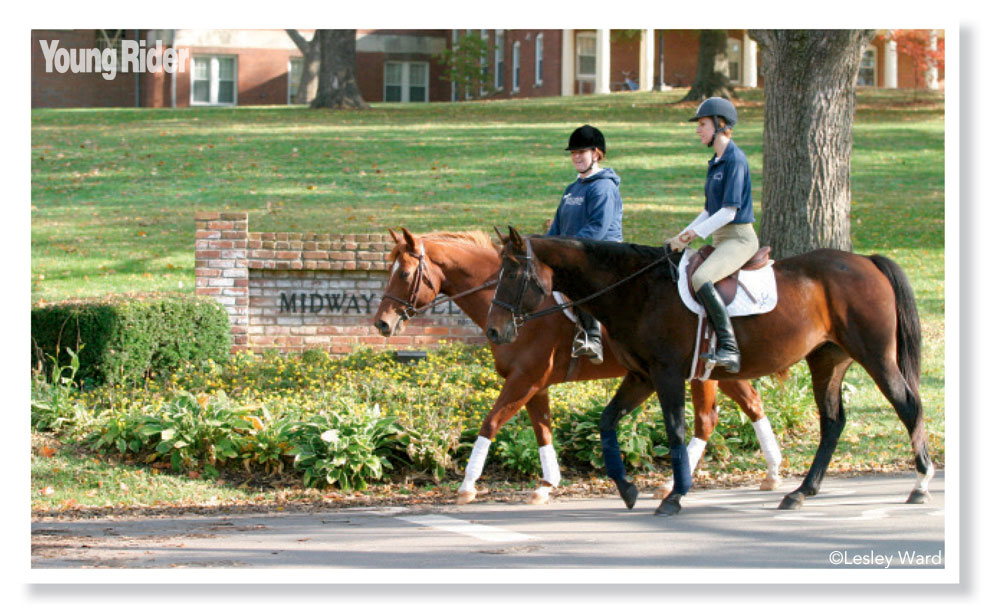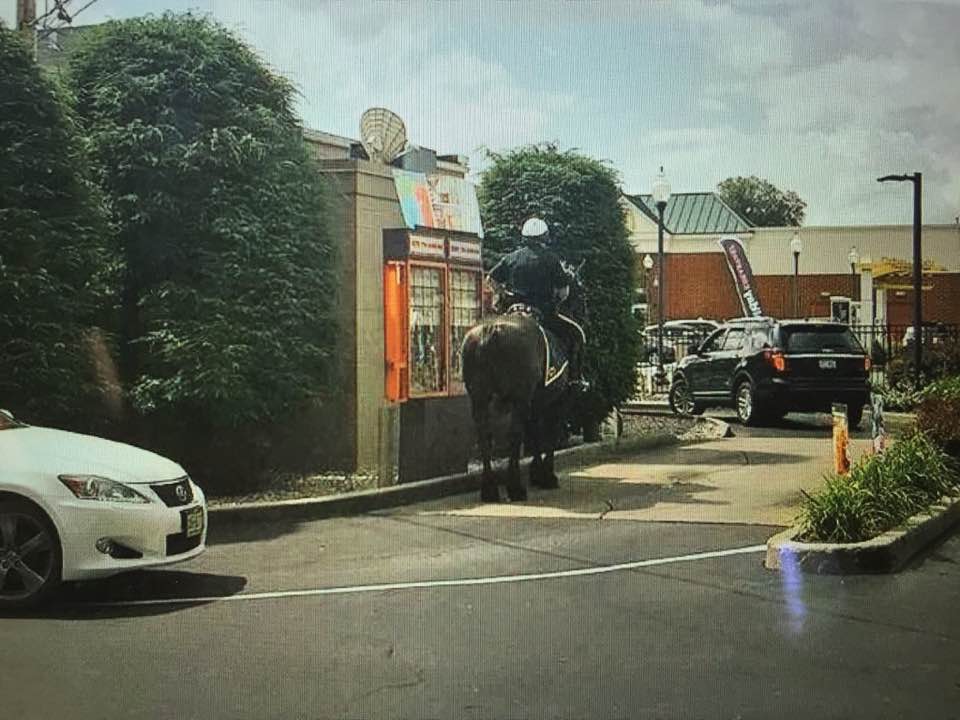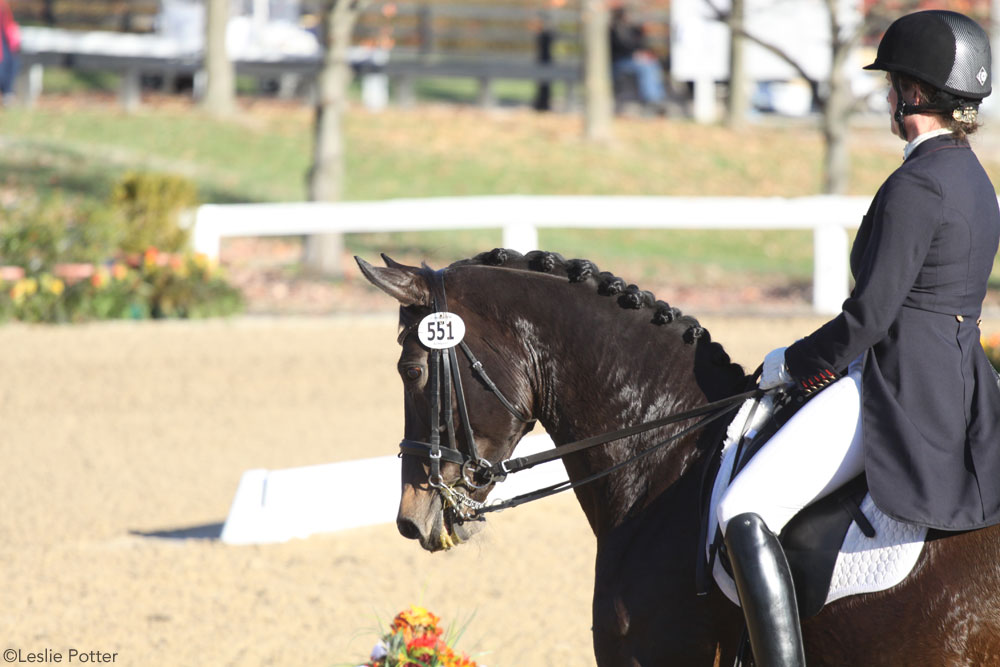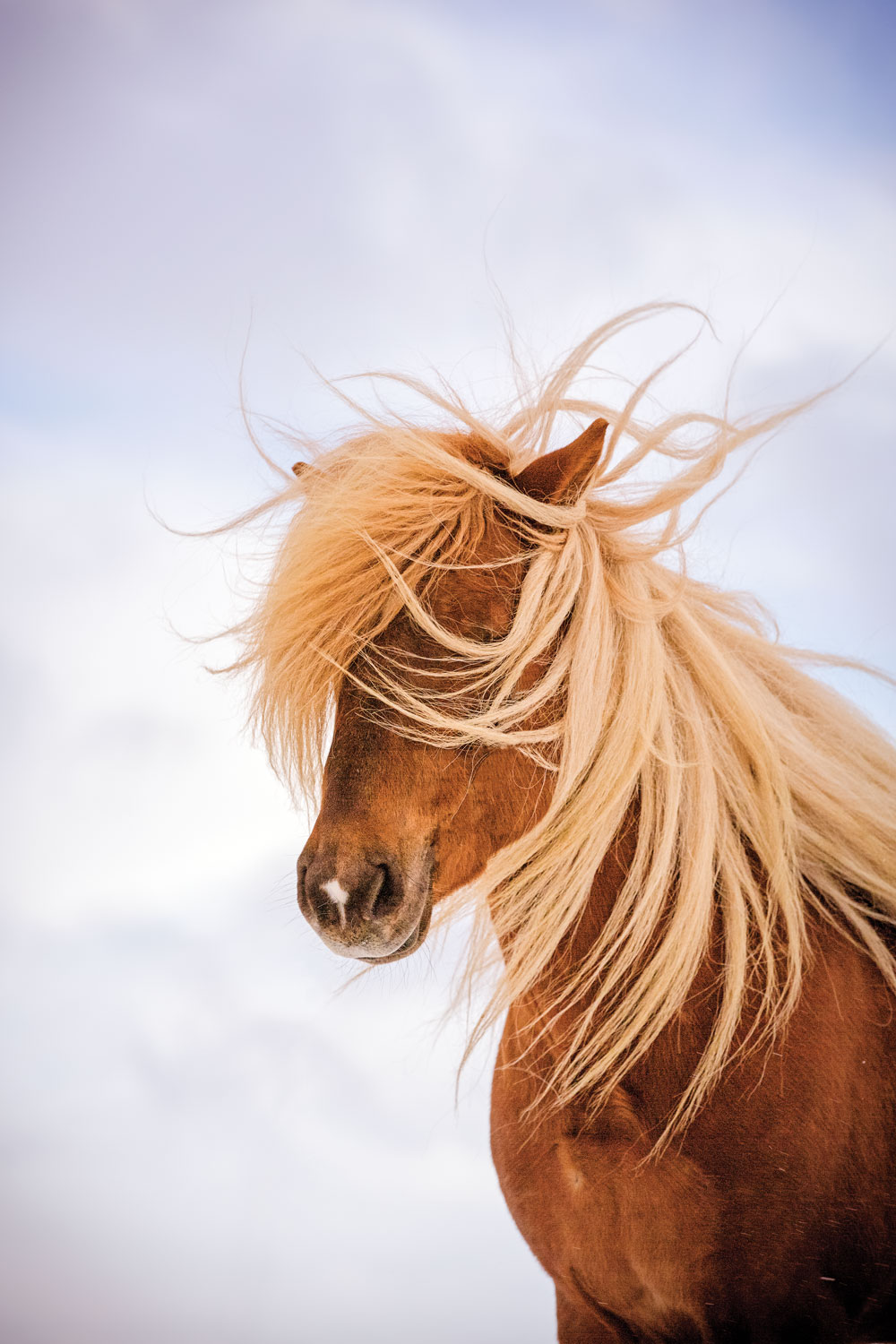Whether high school graduation is one, three or even five years away, it’s never too early to begin thinking about what you might want to do once you accept your diploma. Leaving horses behind after graduation isn’t an option for many young riders—horses are too important! The key will be to find out if an equine-centered major is the right fit for you.
A lot of higher-education institutions are recognizing horse-loving kids’ passion and drive to stay connected with the equine industry; many now offer some type of equine major or minor to satisfy the thirst for knowledge these students have, as well as to prepare them for careers in various equine fields.

Two- or Four-year Degree?
When looking at education after high school, one of the things you’ll need to decide is if you’d like to get a two- or a four-year degree.
A two-year degree is called an Associate Degree. It is typically offered at community colleges, junior colleges and technical colleges, but it’s often available at colleges and universities that also offer four-year degrees.
While typically less expensive, a two-year associate’s is a vocational degree, meaning that the classes you take will be geared specifically toward your major of choice; there are very few (if any) general education classes. Two-year degree recipients are able to get out into the workforce more quickly than their four-year-degree-holding counterparts.
A four-year college typically culminates in either a Bachelor of Science (B.S.) or a Bachelor of Arts (B.A.) degree.
To obtain these degrees, a student must complete extensive classes in general education in addition to the courses relating directly to their chosen major.
These degrees offer recipients a well-rounded education that can be used in a plethora of real-world jobs. Four-year students will typically complete 120 semester credits and 40 college courses. A B.S. or a B.A. is required to pursue any type of advanced degree, such as those needed to become a veterinarian or an equine lawyer.
Whether you choose the two- or four-year degree track is a matter of personal preference and what’s right for you in your circumstances.
A Major Dilemma
Thinking about what you might like to study will help you choose between a two- or a four-year degree.
While there are loads of courses of study you could choose to focus on, called “majoring,” there are some questions you can think about to help narrow down your search: Do I want to ride horses for a living? Do I want to work in the equine industry but not have to be hands-on with horses every day? Am I good at a specific subject, like English or math, and can I combine it with a job in the equine world?
As you explore the majors at schools you like, keep in mind that many schools will have equine options that are specifically theirs. Many of the majors mentioned here will have different concentrations or certificates specific to the school that offers them; these might include concentrations in riding instruction and training, communications, management and more.
Some common equine majors include:
Equine Studies
“Equine studies” is a catch-all term for a multifaceted program that can culminate in either a bachelor’s or an associate’s degree. This program is typically designed to provide students with the tools necessary to step into an entry-level position in the equine industry.
Classes required for this degree may include those on farm operations, equine anatomy and physiology, equine nutrition, record keeping, basic business classes, and selecting and operating farm machinery, among others.
Students who graduate with this degree could utilize it to become barn managers, trainers, riding instructors, professional grooms, equine salesmen, or they may work at horse show barns or racetrack barns.
Equine Science
An equine science degree is traditionally part of a four-year program with a more intense focus on the sciences and how they apply to the equine industry.
In addition to taking the classes required of equine studies majors, students will take science classes and classes that focus on practical horse care, equine management, prevention and treatment of equine illness and disease, and potentially classes on equine legal issues.
Students who graduate with an equine science degree are prepared to do all of the jobs an equine studies major is, as well as manage breeding, show and race facilities; manage horse farms; work for an equine breed organization or governing body; or become a vet tech or equine masseuse (with additional schooling).
Additional careers that would require an equine studies or equine science degree could include an auctioneer, horse show secretary, tack or feed store representative, horse show announcer, jockey, track photographer, grounds manager, guest ranch host or hostess, program director, judge, or horse show stadium jumping course designer.
Equine Business or Equine Business Management
Students who graduate with an equine business or equine business management degree typically combine equine science classes with traditional business classes, such as economics, law, marketing and accounting. Some of these classes will have an equine-specific slant, while others could be typical business classes that are applicable to any business, equine or not.
Students who graduate with this degree could become equine pharmaceutical representatives, equine tax specialists, equine accountants, equine lawyers (additional degree required), equine insurance agents, horse show managers, and more.
Equine Training and Management
Students who choose to major in discipline-specific training—whether it is hunt seat, western, saddle seat or driving—will learn classroom theory as well as get hands-on experience, typically in everything from breaking to finishing horses.
Schools that offer training majors often have large barns and many horses for students to work with. In addition, many schools also bring in clinicians and guest lecturers for students to learn from.
While there currently is no degree required to be a horse trainer in the United States, having the book knowledge to back up training methods will go a long way toward helping customers understand what you do.
Additionally, the professional trainer contacts that you make during your time at college will prove invaluable as mentors as you establish yourself in the equine community.
Equine-Assisted Therapy
Also called equine-assisted therapeutics, equine-assisted wellness, equine-assisted psychotherapy and equine-assisted mental health, among other names, this course offering is a stand-alone major at some schools and a minor or concentration at others.
This degree is part of a rapidly growing field that partners mental health professionals and horses with clients who may suffer from depression, post-traumatic stress disorder or abuse, in addition to those who may be developmentally challenged.
This degree combines traditional equine science courses with those in psychology, kinesiology, and human anatomy and physiology classes, as well as potentially those involving social work and horse training.
Choosing what college you want to go to and what you want to major in is a big decision, but doing your homework will pay off when you discover the perfect pairing of your profession and your passion for horses.
This article originally appeared in the September/October issue of Young Rider magazine. Click here to subscribe!





